When you watch your pet fish goofing around in the tank, looking clueless and lost, you probably start to wonder how dumb they are! But what I am about to tell you may shock you to the core.
Fish, indeed, have brains. Not only that, but their brains are also quite superior compared to other species of Kingdom Animalia. The cognitive complexity of the fish brain has concluded the debate, and the verdict was that fish are quite more intelligent than we think.
If you are wondering how smart fish are and if they can beat you in a round of chess matches, keep reading the article.
Do Fish Have Brains?
If you are aware of basic fish anatomy, you probably have noticed a jelly-textured substance above the gills attached to the front of the spinal cord. That is where the fish brain is located. The brain is attached to the spinal cord so that thoughts and feelings that are produced via neurons of the brain can be transferred through the spine and spread all over the body and organs.
Such complex communication systems are mostly seen in terrestrial species, but fish’s cognitive mechanism has reassured us that aquatic creatures don’t fall behind in terms of intelligence as well. However, if you want to measure the brain size, you will find that compared to other animals, the fish brain is microscopic.
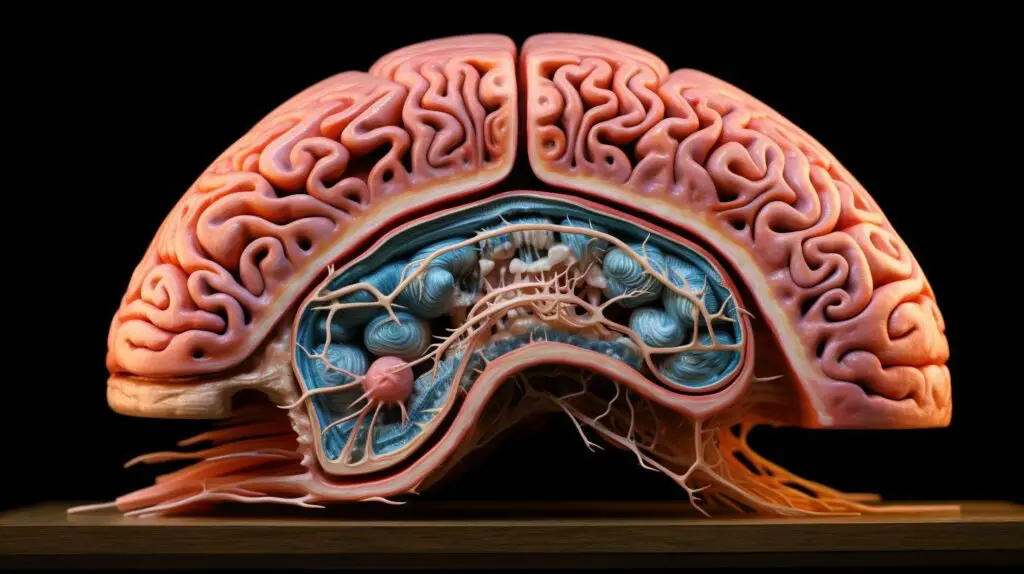
The brain size is measured by taking the body size and weight into account. Fish’s brain-to-body ratio is quite small compared to other vertebrates. But it will be unfair to claim this surmise grossly. There are fishes, deep into the ocean, that have quite proportional-sized brains. Even some fish brains can easily outweigh human brains.
Fish have the most prominent and functional brain-to-body ratio for oxygen consumption compared to other vertebrates. Their brain is functioned to perform complex tasks. In fact, they are so good at those that they can beat young children, lower IQ people, and chimpanzees to any given task.
Read Also: Do Fish Like to Play With Toys?
What Fish Have The Biggest Brain?
Usually, fish possess a very small brain compared to other vertebrates. However, there are some fishes in the deep blue that possess the size of a brain which can make any people drop their jaws. They do not only possess the award for big brain under the aquatic creature category. Their intellectual capacity has brought many applauses as well.
The Manta ray, a curious and vibrant seawater fish from the Indian Ocean zone, has the biggest brain of all time. Their brains weigh 200g, ten times larger than a whale or shark. They are capable of solving cognitive problems and communicating with size gestures. And, most surprising of all, they can recognize them in the mirror as proof of self-awareness.
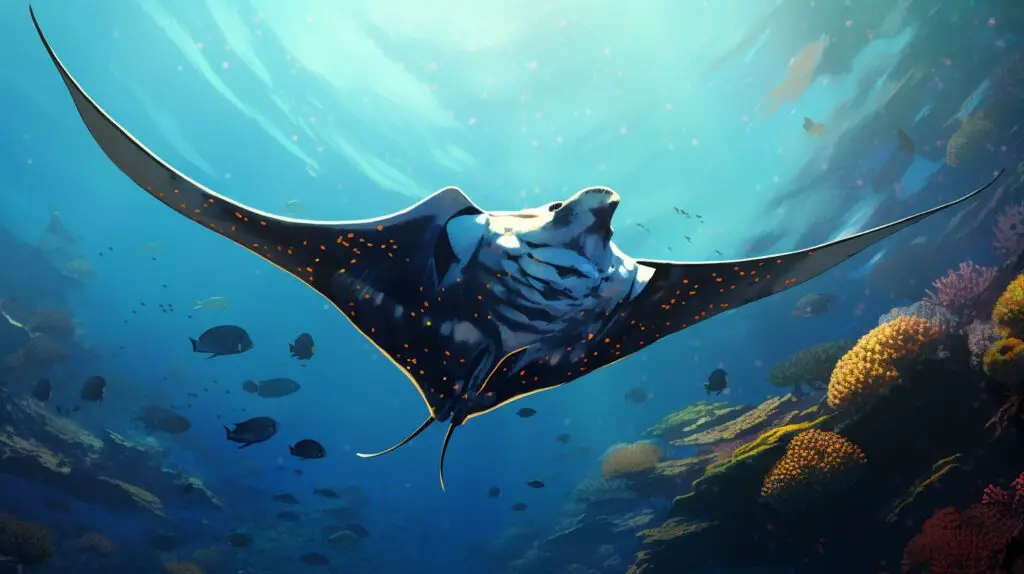
How To Measure A Fish’s Intelligence?
Like human intelligence is measured by the test of IQ, animals have their separate test for measuring intelligence. This is called the encephalization quotient (EQ). It basically observes the activities of one particular subject and jots down the result. Then, the result is compared to other subjects or species with similar brain sizes. However, there is no hard and fast rule to measure the EQ of fish.
EQ test is slightly different for aquatic and submarine creatures, but the basic analogy is quite similar. The most useful method of measuring the intelligence of fish is the test of problem-solving in a different context. When a fish is shifted from ocean to tank or from one tank to another, their adaptability and cognitive acceptance of new ambiance usually define the intelligence of that fish.
Moreover, fish are experimented on in the labs with lots of learning tests. They are trained in social learning, reversal behavior, operant conditioning, classical conditioning, and spatial learning. How quickly and profoundly they are learning those lessons also indicates the measurement of fish intelligence.
Recently, the test of fish intelligence has been more advanced and similar to terrestrial beings. Different kinds of tools are provided to them, and their proficiency is measured via tests. Some scientists are even calculating their mathematical intelligence. A few common tests to measure the competency of fish are memory and the ability to self-recognize.
The Functions Of Fish Brain
Ok, now you are probably wondering why fishes even need a brain. They don’t have to go to school, solve calculus, or graduate with a good CG. They can just relax, swim around as much as they want, and chill. But it will take you by surprise when I start to list the functionality of the fish brain.
Memory
You must have heard the phrase, a memory of a goldfish as slang to indicate a weak memory. Even though it is proclaimed that goldfish have a three-second memory, it is nowhere near the truth. A test has revealed that goldfish can remember a memorable color even after a year. Some fish’s memory is impeccable, especially for things that they are attached to.
If you want to test your fish’s memory at home, a time-place test will be most suitable and appropriate. Place the food for your fish at the same time and at the same place. Within two weeks, you will notice your fish is lurking around the area when it is time for food. That is because time-place learning cognitive capacity takes around two weeks to build for the fish.
Storing Information
Our brain is basically a giant gigabyte of Pen drive, where we store memories and information that we gather through knowledge and experience. The same pattern can be observed in the case of a fish’s brain as well. Due to lack of space and size, their storing capacity is very selective and minuscule compared to other creatures.
If you observe the behavior of ocean fishes, you will notice how they live within a surrounding territory, and even if they go out to fetch food or protect themselves from predators, they can find a home. That is because their brain is capable of storing information about their whereabouts. Also, they always avoid a reason or situation of previous shock or trauma as they remember what to avoid and what the consequences were.
Construction
Even a few years ago, scientists used to think that fish found space in the ocean and started living there. But, as we have observed already, they don’t always find a home, rather, they have the capability to build their home. Their complex cognition has enough capacity to construct even in the deep ocean.
An interesting fact is that fish construct more than mammal does. Some species use their body produces to build their nest. Such as, wrasse uses their mucus to create cocoons, and clownfish use bubbles to create nests. To protect and hibernate the eggs, fish build up defensive barriers with their cognitive ability.
Ability To Use Tools
Remember how our history class has taught us that learning to use tools was the starting point of civilization? Apparently, our aquatic buddies have been doing this way before us. Even with the constraints, fish’s brains have managed the adaptability to use tools. So far, 9,000 species have been documented to use tools to build, construct, or crack.
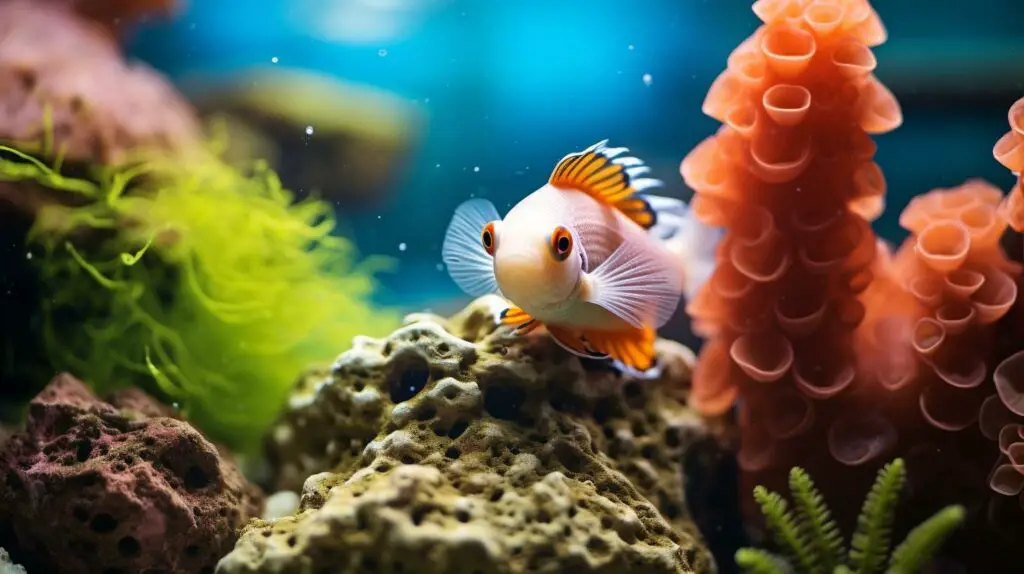
Fish usually uses hard corals, rocks, or pebbles as tools. They use it mostly to build nests or build a protection barrier for themselves and their eggs. Some fishes use corals and rocks to crack the shellfish to open and eat the meat inside. Fishes like catfish have found an innovative way to carry their eggs securely. They first glue their eggs with pebbles and small rocks, and they carry the attached eggs.
Communication
Fish can communicate with their fellow mates and other inhabitants of the tank, thanks to their cognitive capacity. They make squeaky and low-frequency sounds that other fishes can hear and understand. As for humans, we need a special device to listen to such low frequencies as our ears are not habituated to listening to such frequencies.
Fish are capable of communicating with each other through body language as well. Many species have adopted different methods and strategies to comprehend each other. The most common body gesture that you can observe at your tank is nibbling the fins to draw attention. It may look like they are attacking or fighting, but this is mostly a part of their communication.
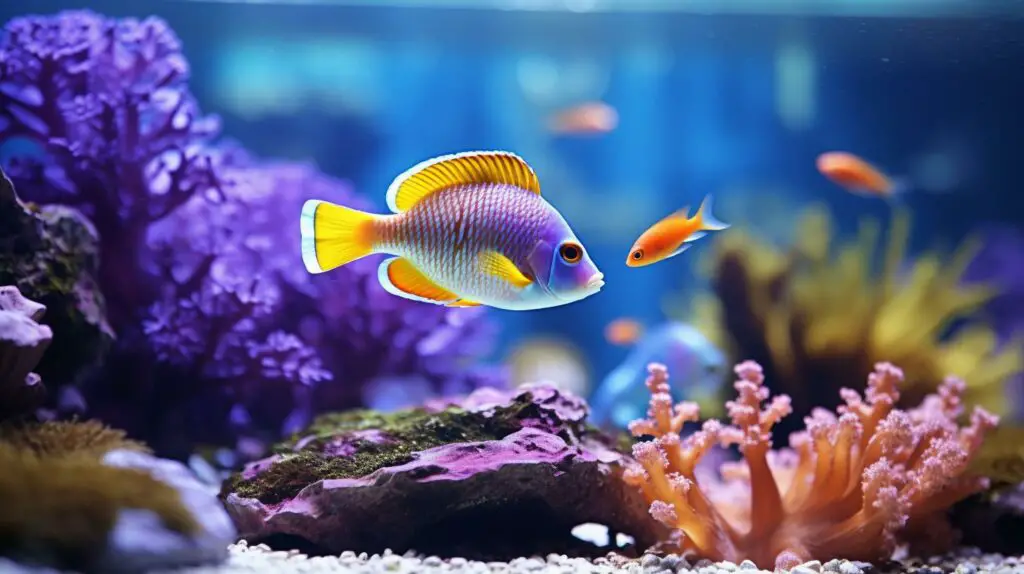
Social Intelligence
Like human beings, fish are also social or recognize society or colony. If you take a fish from a tank where it used to live with its mates and drop it off at a stranger tank with no companions, you can notice some gestures that he is trying to leave and join the old tank and its old mates. From the bare eye, we probably can’t comprehend the invisible social bond that fish share.
Fish can identify bigger predators and troublemakers in the tank. If you introduce a new inhabitant into the tank, you will see other fishes reacting differently. Some fish maintain their distance, while others welcome it to their territory. You may think some fish of yours is rude and distant. But the truth is, their brain is capable enough to identify, socialize and comprehend the line between friends and foes.
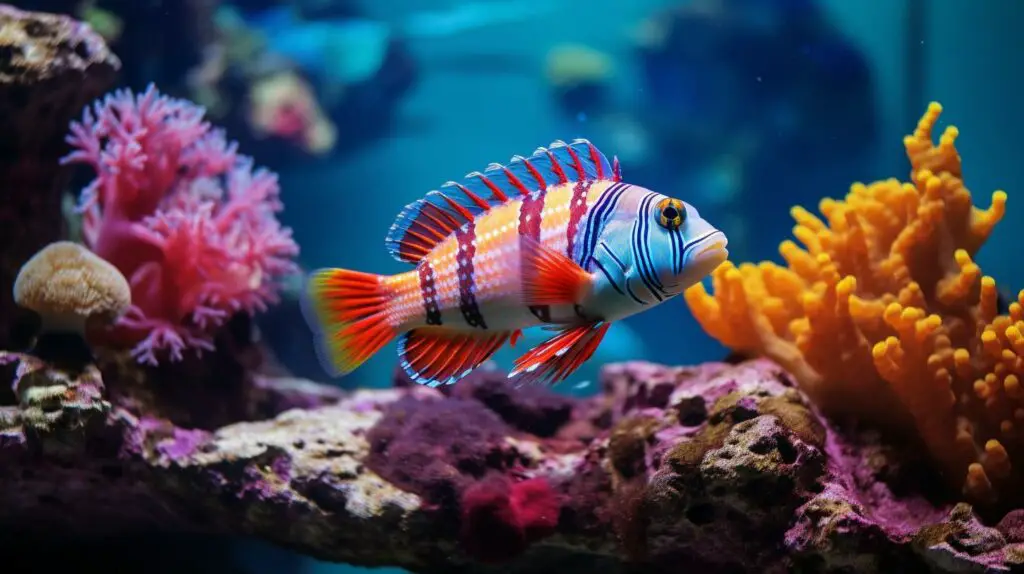
Read Also: Clownfish Tank Mates
Feeling Pain
There is a misconception about fish that they are not associated with pain or they can’t feel pain. We can’t really go to them and ask them about their feelings, but we can draw conclusions by observing their physical attributes. Fish have their own nervous system, and their brain has brain chemicals, namely neurotransmitters.
Neurotransmitters, to easily explain, are the hormones like dopamine, serotonin, and cortisol that discharge from the brain and travel through the body. The combination of neurotransmitters and the nervous system implies that fish, like us, can feel pain, anxiety, happiness, etc. That is why, when we are bound to euthanize a fish, we need to be careful not to cause it unnecessary pain.
Read Next: How to comfort a dying fish
Cooperation
When you are in the wild, you are on your own. We all have heard that statement somewhere in our life. But guess what? Creatures living in the wild are not necessarily on their own. Their brain is functioned to comply with cooperation and sympathy. Their cooperation skill can mostly be observed during food hunting and predator evading. They will jointly calculate the ways to survive the predator and assign roles to their mates to skip and save themselves.
They also can identify betrayal and disunity by a member, and it has been observed that fish remember such betrayal and avoid the traitor on their next hunting. Fish are capable of communicating and cooperating among different species. Moray eels and groupers have their own system where groupers signal the eels about the location of food, and moray eels piggyback the groupers to that designated location.
Fish’s Conception Of Human
Fish have shown evidence that their brain is capable of identifying humans and separating one individual from others. Fish’s way of thinking is grossly divided into two categories. Positive way and negative way. They also have a memory span of both short-term and long-term. When fish is attributed with fear, anxiety, and panic caused by a human, they target him as a threat and avoid him at all costs, even after a year.
But if the notion about the human is positive and friendly, they will cooperate and befriend him like any other community member. You can watch the relationship between dolphins and their trainers and how close and attached they are to each other. Sometimes they identify humans as friends or mates, but they can sometimes target them as a food source. Depending on their experience with humans, they show different behaviors and emotions.
Final Words
The intellectual and cognitive capacity of fish can no longer be ignored and looked down upon. They have proved their intellectual worth by exhibiting through tests and competition. They probably can’t beat you on a round of chess game yet, but what they can do with such tiny brains deserves to be acknowledged.
